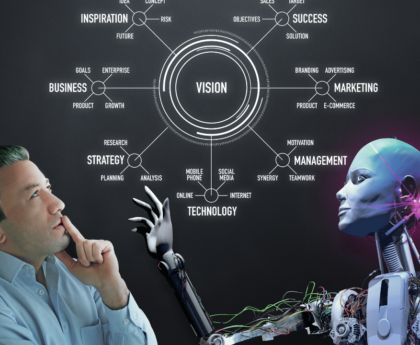Discover how the quantum computing revolution is set to transform industries like healthcare, AI, and finance. Learn about its potential, challenges, and impact on society over the next decade.
In the world of technology, a new player is making waves that could change everything we know about computing. This revolutionary advancement is quantum computing. While traditional computers handle information in bits (0s and 1s), quantum computers operate on a completely different level, using quantum bits or qubits. These qubits can exist in multiple states simultaneously, a property called superposition, and they can also interact with each other through entanglement. These unique features make quantum computers exponentially more powerful for certain tasks than the computers we use today.
In this article, we’ll explore what quantum computing is, how it works, and the profound impact it is expected to have across various industries over the next decade.
What Is Quantum Computing?
Traditional computers, like the one you might be using to read this, process information in a linear way. They perform calculations one at a time, at incredible speeds. Quantum computers, however, are different. They use the principles of quantum mechanics, a branch of physics that deals with the behavior of tiny particles like atoms and photons.
Read More: National Cookie Day: Celebrate with Freebies and Sweet Deals in Wisconsin
The two key principles that make quantum computing special are:
- Superposition: A qubit is like a cool little quantum dude that can chill as both a 0 and a 1 simultaneously. It’s like having a computer that can juggle a bunch of different outcomes all at once before you check in on it. Crazy, right? This is what makes quantum computers so darn good at handling a whole bunch of potential solutions at the same time.
- Entanglement: Two or more qubits can be linked, so the state of one directly affects the state of the other, no matter how far apart they are. This connection allows for incredibly fast and complex problem-solving.
How Does Quantum Computing Work?
Instead of solving problems step by step like traditional computers, quantum computers consider multiple solutions at once. Think of it as a maze: a classical computer would explore one path at a time until it finds the exit. A quantum computer, on the other hand, would explore all paths at the same time and immediately pinpoint the right one.
To make this work, quantum computers use quantum gates, which manipulate qubits to perform calculations. While this process is incredibly powerful, it’s also delicate. Quantum systems must be kept at extremely low temperatures to maintain stability and reduce errors, a challenge that has slowed widespread adoption.
Why Is Quantum Computing Important?
The immense power of quantum computing could solve problems that are impossible for today’s computers to tackle. Here are some spots where quantum computers are gonna rock the boat big time:
- Medicine and Healthcare:
Quantum computers could revolutionize drug discovery by simulating molecular interactions at an unprecedented scale. This would allow scientists to identify potential treatments or cures for diseases like cancer and Alzheimer’s much faster than traditional methods. - Cryptography and Security:
Current encryption methods rely on the difficulty of solving certain mathematical problems, which classical computers struggle with. Quantum computers, however, could crack these codes in minutes. To counter this, researchers are developing quantum-safe encryption to secure sensitive information in the quantum era. - Artificial Intelligence (AI) and Machine Learning:
Quantum computing could speed up AI training processes, enabling more advanced machine learning models. This could lead to breakthroughs in areas like autonomous vehicles, natural language processing, and even climate modeling. - Financial Modeling:
The finance industry relies on complex calculations to predict market trends and manage risks. Quantum computers could analyze these massive datasets in real time, providing more accurate insights and faster decision-making. - Supply Chain and Logistics:
Quantum computing can optimize complex logistics problems, such as finding the most efficient delivery routes or managing inventory. This could save businesses time and money while reducing environmental impact.
Challenges in Quantum Computing
Despite its cool factor, quantum computing’s got some serious hurdles to jump over:
- Fragility and Errors:
Qubits are extremely sensitive to their environment. Even slight changes in temperature or vibrations can cause errors in calculations. Researchers are working on error correction techniques to address this issue. - Cost and Scalability:
Building and maintaining quantum computers is expensive. Cooling systems, advanced materials, and precise engineering make these systems costly and difficult to scale for widespread use. - Workforce and Knowledge:
Quantum computing requires a highly specialized skill set. There is a global shortage of experts who understand both the technology and its applications. - Ethical Concerns:
The power of quantum computing raises ethical questions, especially around its potential use in areas like surveillance and data privacy. Governments and organizations will need to establish guidelines to ensure responsible use.
The Next Decade of Quantum Computing
The 2020s have already seen significant progress in quantum computing, but the next decade promises even more exciting developments. Here’s what we can expect:
- Increased Commercialization:
Tech giants like IBM, Google, and Microsoft? Oh, they’re totally throwing down big bucks on quantum computing, you know? It’s like the cool new toy all the big kids on the block are fighting over. These companies aim to make quantum services available to businesses through cloud platforms, democratizing access to this powerful technology. - Integration with Traditional Systems:
Instead of replacing classical computers, quantum computers will work alongside them, handling tasks that require immense computational power while leaving simpler tasks to traditional systems. - Advancements in Quantum Networks:
Researchers are working on quantum internet, a new kind of network that uses quantum mechanics to securely transmit information. This could revolutionize how data is shared and stored. - Breakthroughs in Research:
Quantum computing will accelerate research in fields like material science, renewable energy, and environmental conservation, addressing some of the world’s most pressing challenges.
Quantum Computing’s Potential Impact on Society
Quantum computing has the potential to transform not just industries but society as a whole. Here’s how:
- Economic Growth:
The quantum industry is expected to create new markets, jobs, and opportunities, driving economic growth. - Improved Quality of Life:
Breakthroughs in healthcare, climate solutions, and AI could lead to better living conditions and longer life expectancy. - Global Collaboration:
The complexity of quantum computing encourages collaboration among countries, universities, and organizations, fostering innovation and shared progress.
Conclusion
Quantum computing? It’s not just some fancy gadget upgrade, it’s like a whole new way of thinking about tech, man! It’s basically flipping the script on how we do computations. Crazy, right? It’s like going from playing checkers to chess in the tech world. By leveraging the principles of quantum mechanics, this revolutionary technology promises to tackle problems that have long been considered unsolvable. Over the next decade, we’ll witness quantum computing reshape industries, accelerate innovation, and unlock new possibilities.
While challenges remain, the progress made so far gives us a glimpse into a future powered by quantum computing. As we stand on the brink of this transformation, one thing is clear: the quantum era is just beginning, and its impact will be felt for generations to come.





